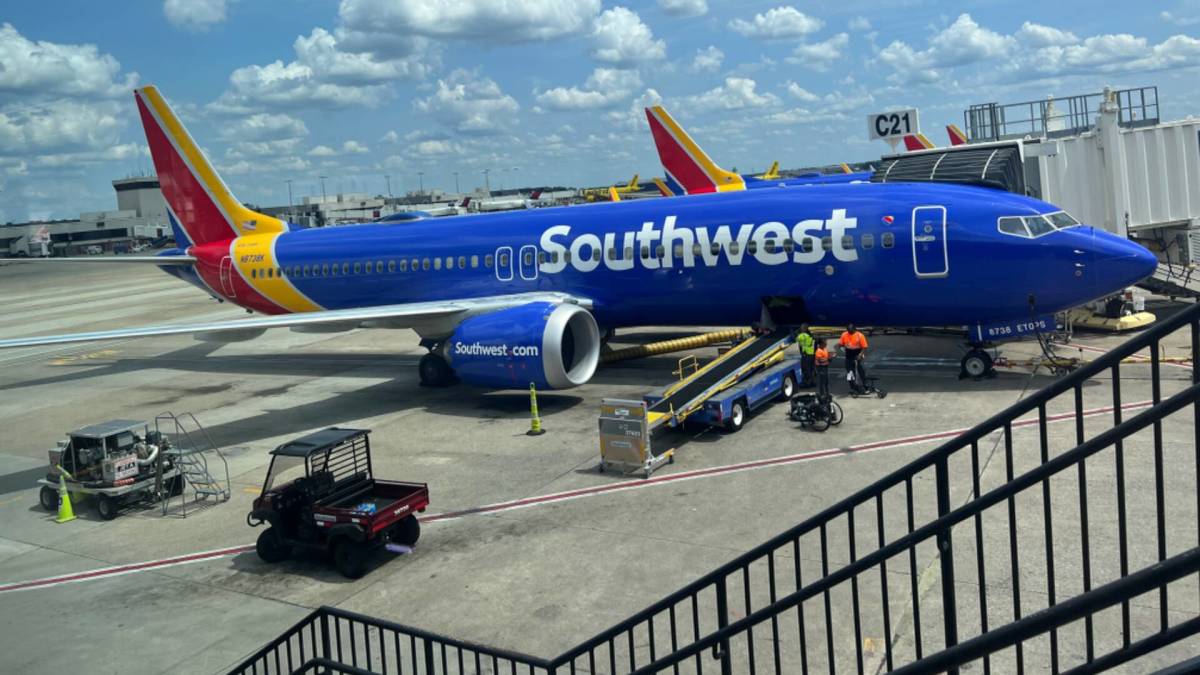
For the second time since the start of the year, Southwest Airlines (LUV) had to tell shareholders that the company is doing worse than what was reflected on the market.
The airline cut its second-quarter revenue outlook on June 26 while naming the cause as major changes in how people book their travel. It now expects revenue per available seat mile (RASM) to fall by between 4% and 4.5%.
Related: I just flew Southwest for the first time ever — here is what it was like
At an April earnings call, Southwest also posted a wider-than-expected loss of $231 million, or 39 cents a share, in the first three months of 2024 on top of growth capacity of 4% instead of the 6% announced last year.
Southwest ‘adapting its revenue management to current booking patterns’
This time, Southwest also said that it expects unit expenses such as fuel to rise by 7.5%.
More Travel:
- A new travel term is taking over the internet (and reaching airlines and hotels)
- The 10 best airline stocks to buy now
- Airlines see a new kind of traveler at the front of the plane
“The reduction in the Company’s RASM expectations was driven primarily by complexities in adapting its revenue management to current booking patterns in this dynamic environment,” Southwest said in a regulatory filing.
Once the news was made public, Southwest stock immediately plunged by more than 4% in pre-market trading. By the afternoon, it rebounded slightly to $28.24 at last check.
Southwest said that it is “intensely focused on improving its financial results.” Also this year, it had announced that it was laying off 2,000 employees ranging from pilots to airport ground staff and ceasing operations at four airports across the country entirely — New York’s Syracuse, Washington’s Bellingham, Houston’s George Bush International Airport and Cozumel Airport in Mexico.
Related: Get the best cruise tips, deals, and news on the ships from our expert cruiser
What Southwest is doing to turn its finances around
Southwest has also been hit hard by the Boeing (BA) investigation that has significantly slowed production and, subsequently, deliveries — the airline now expects only to get 20 planes instead of the 46 it had initially hoped to order for the future, and so will be unable to run many of the routes it needs to bring in profit.
“The recent news from Boeing regarding further aircraft delivery delays presents significant challenges for both 2024 and 2025,” Southwest CEO Bob Jordan told investors back in April. “We are reacting and replanning quickly to mitigate the operational and financial impacts while maintaining dependable and reliable flight schedules for our customers.”
After a string of unprofitable quarters, Southwest Airlines is increasingly facing calls to switch up how it does business.
Elliott Management — the hedge fund started by Paul Singer recently became one of Southwest’s largest stakeholders — on June 14 said that it wants to see the replacement of both Jordan and board chairman Gary Kelly in order for the board to “reconstitute itself and upgrade the company’s leadership.”
In response, Southwest said that it is “confident” that the current leadership can turn things around and continue to provide “long-term value” for investors.
“The Southwest Board of Directors is confident in our CEO and management's ability to execute against the company's strategic plan to drive long-term value for all shareholders, safely and reliably serve our customers, and deliver on our commitments to all of our stakeholders," the Southwest spokesperson said.
Related: Veteran fund manager picks favorite stocks for 2024







